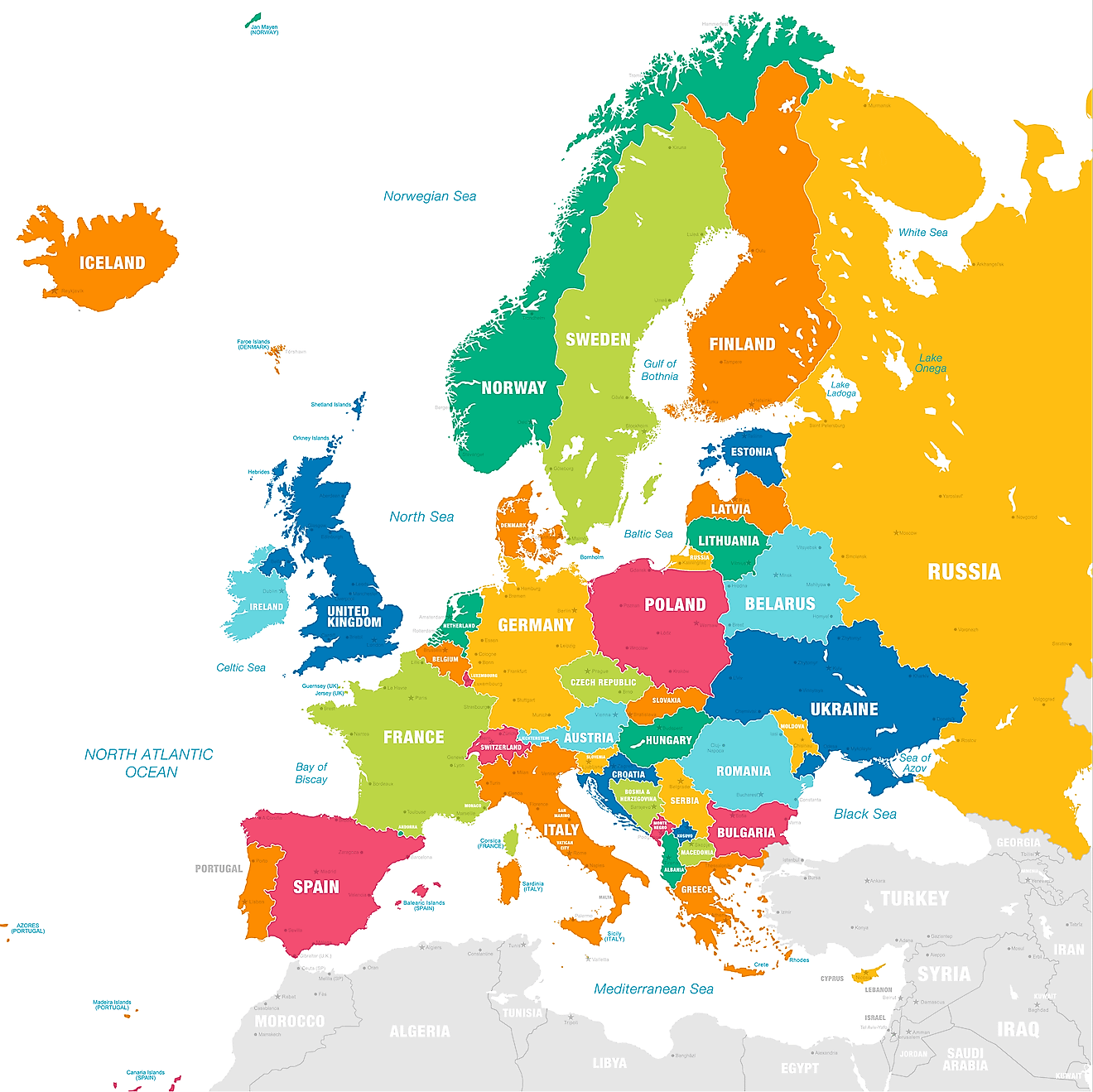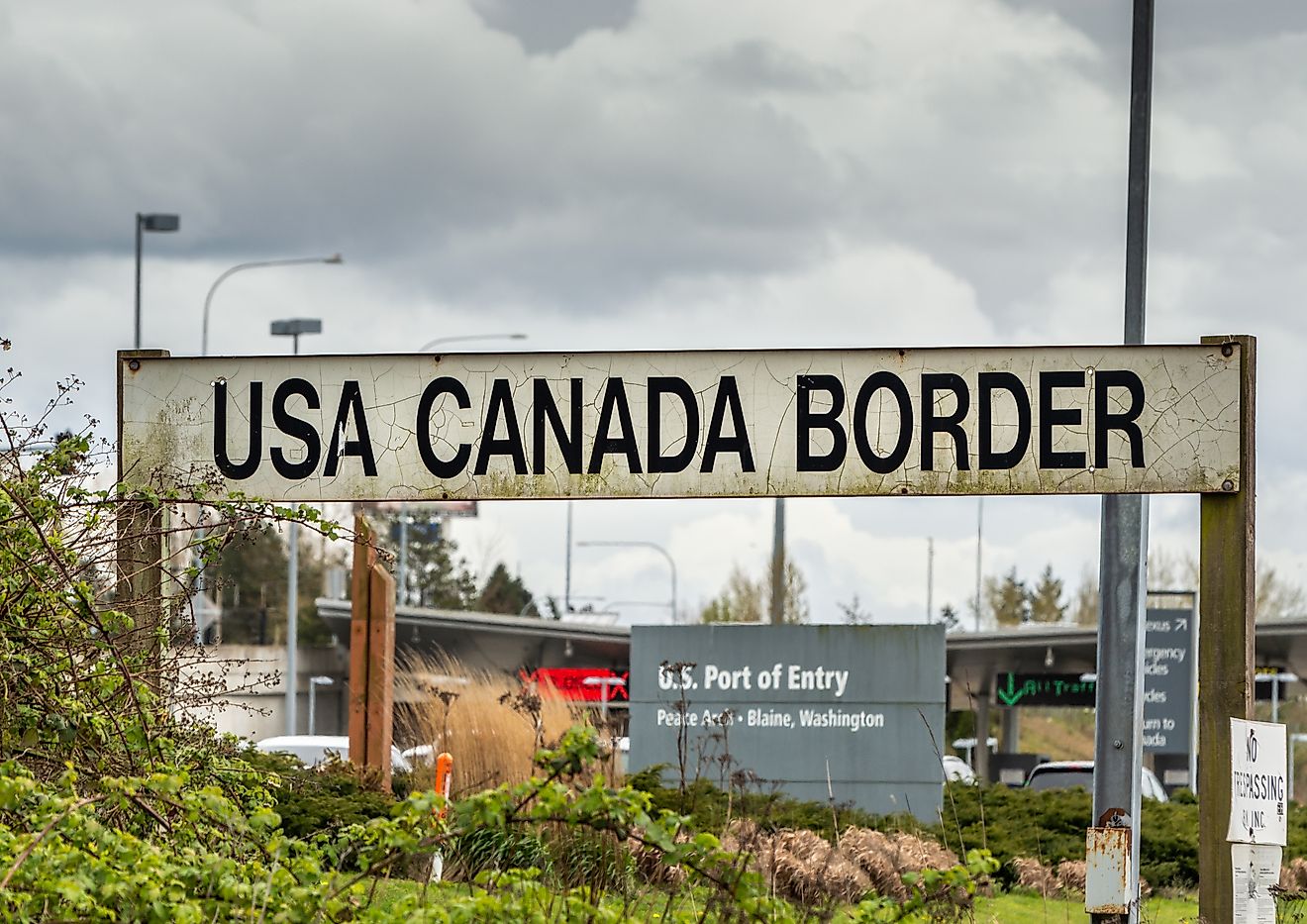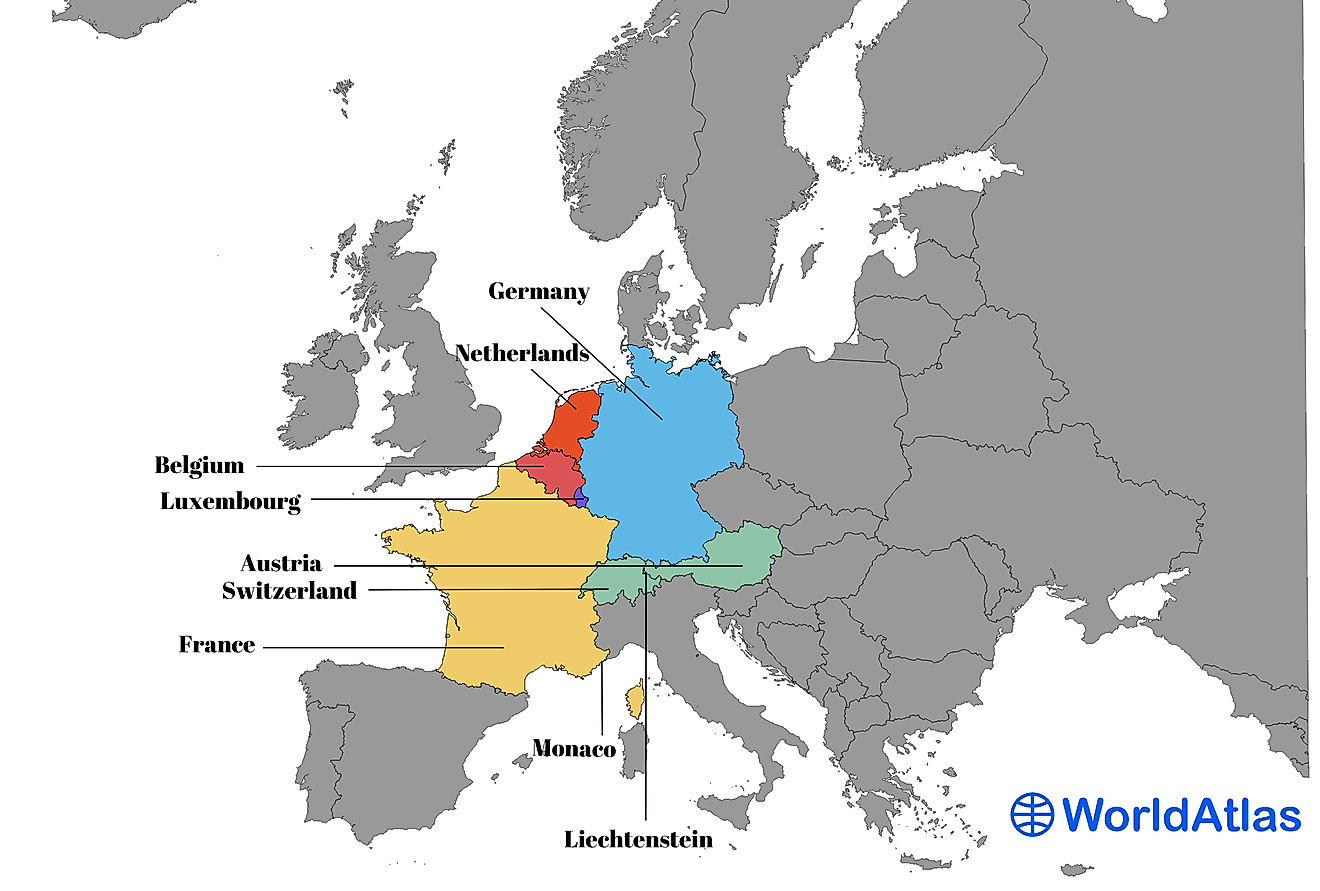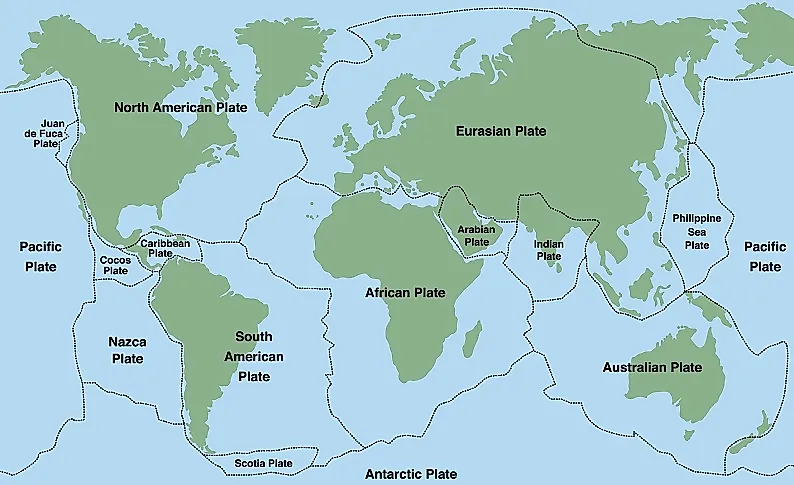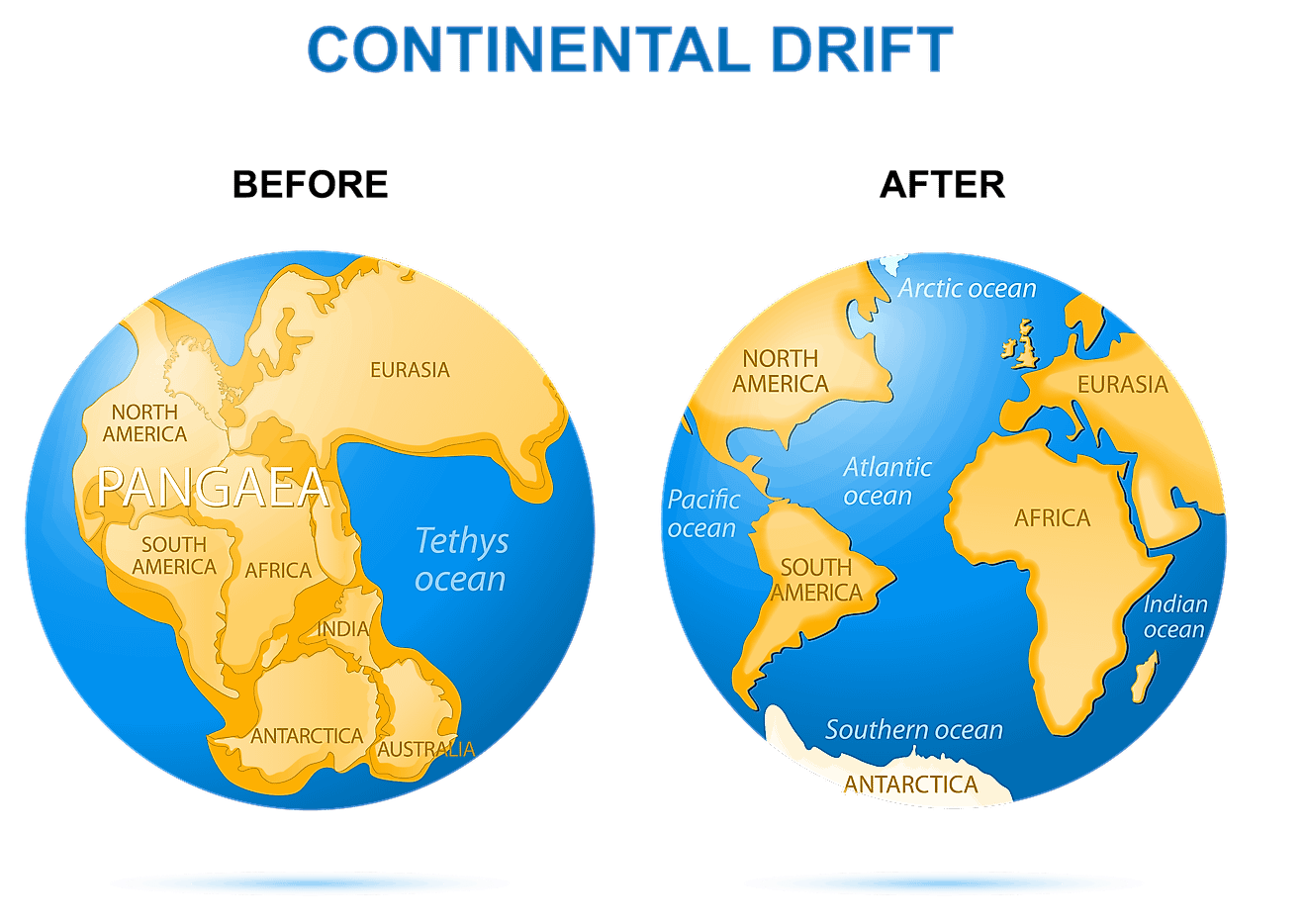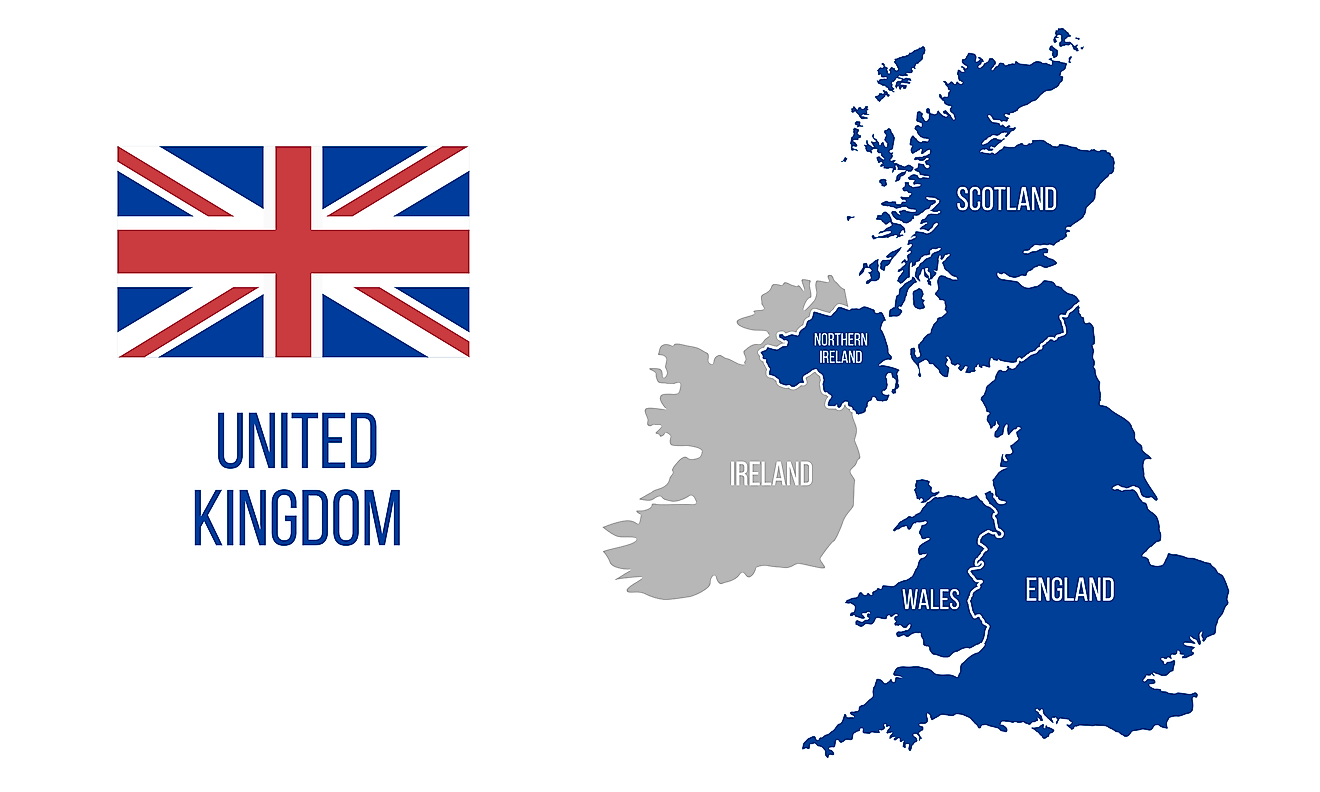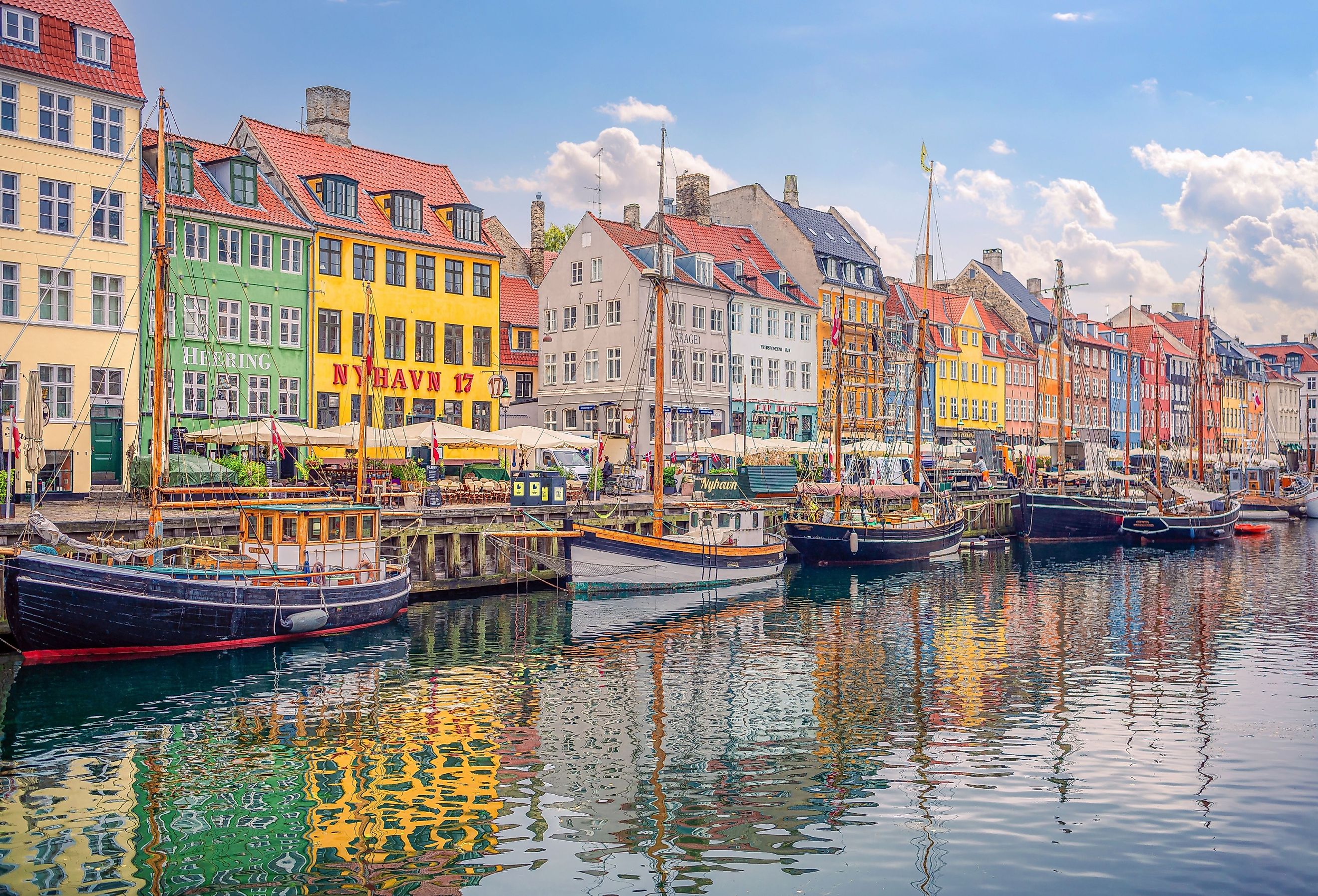
7 Letter Countries
The names of 40 countries are made up of seven letters. These countries can be found in all the continents of the world except for Antarctica, although Australia/Oceania only possesses one— Vanuatu. Twelve of the countries are in Africa, and sixteen are in Europe. The remaining countries are in Asia, with five (although Georgia is transcontinental), and the Americas, with six. Although some of the countries are on the same continents, their names are of diverse origins and only relate to the history of the particular country.
Albania
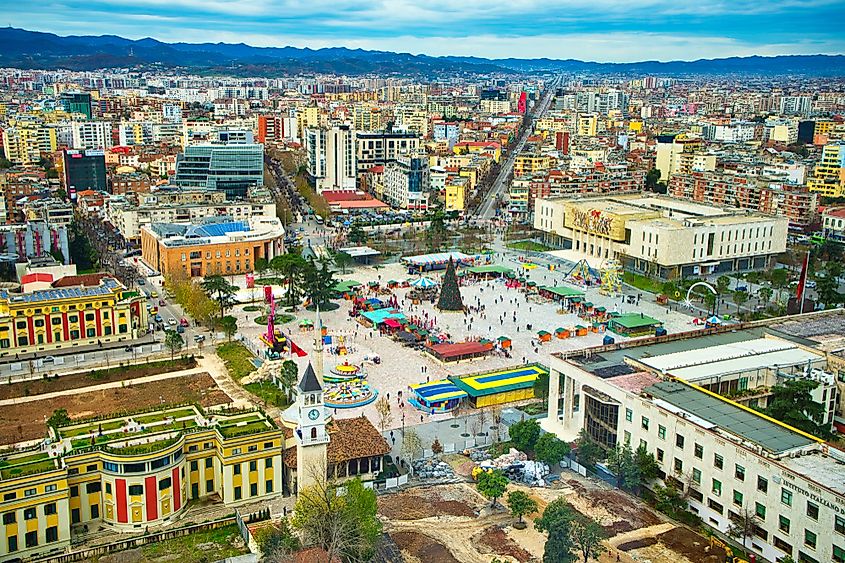
Albania is not only a seven-letter country but also one of the few countries that start with the first letter of the alphabet. It is officially known as the Republic of Albania and is located in Southeast Europe. The name “Albania” may have originated from the Illyrian tribe of Albani and may have been a continuation of the name of a medieval settlement known as Albanon. Today, the Albanians refer to their country as “Shqiperi” meaning “Land of the Eagles” or “Shqiperia” meaning “Children of the Eagles.”
Algeria
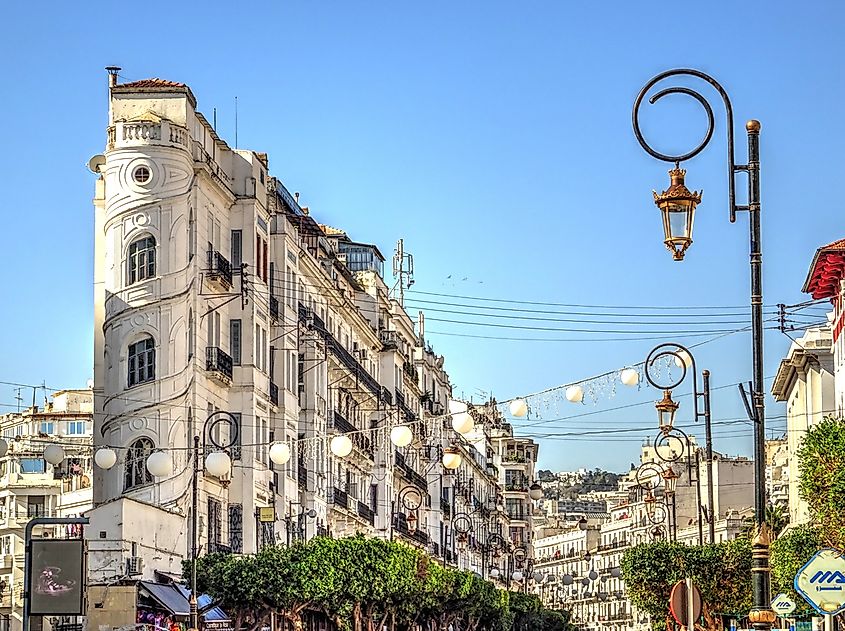
The People’s Democratic Republic of Algeria, commonly known as Algeria, is located in Northwest Africa. It is one of the few countries whose capitals share a name similar to the country's. Interestingly, Algiers, which is the capital of Algeria, also has seven letters. The country derives its name from its capital, which derives its name from the Arabic word "al-Jazā'ir," meaning “The Islands.”
Andorra
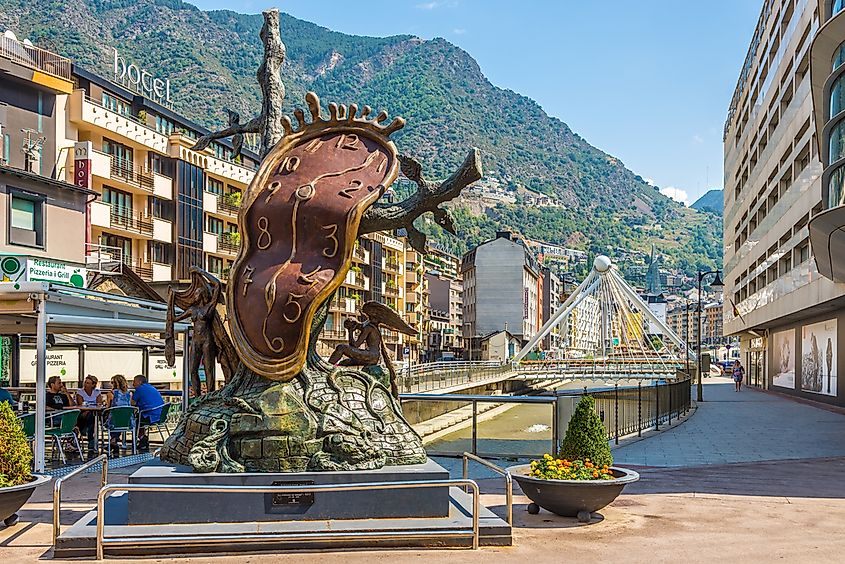
Andorra lies between France and Spain in the eastern Pyrenees mountains, sharing borders with both countries. The name "Andorra" might come from a pre-Roman word "Andurrial," which means "shrub-covered land." Another theory suggests that the name derives from the Arabic "al-durra," meaning "the pearl." A notable fact about Andorra is that it has no military; instead, France and Spain are responsible for its defense.
Armenia
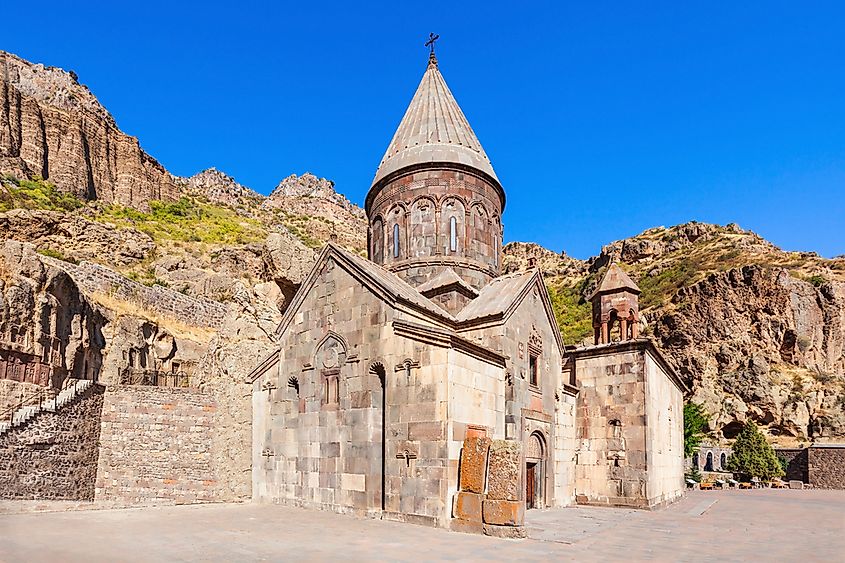
Armenia is a Caucasian country located in the region of Eurasia. Its largest and capital city, Yerevan, also has seven letters. The country’s original name was “Հայք (Hayk’).” However, the name is rarely used today. The name Armenia is derived from the Armenian people.
Austria
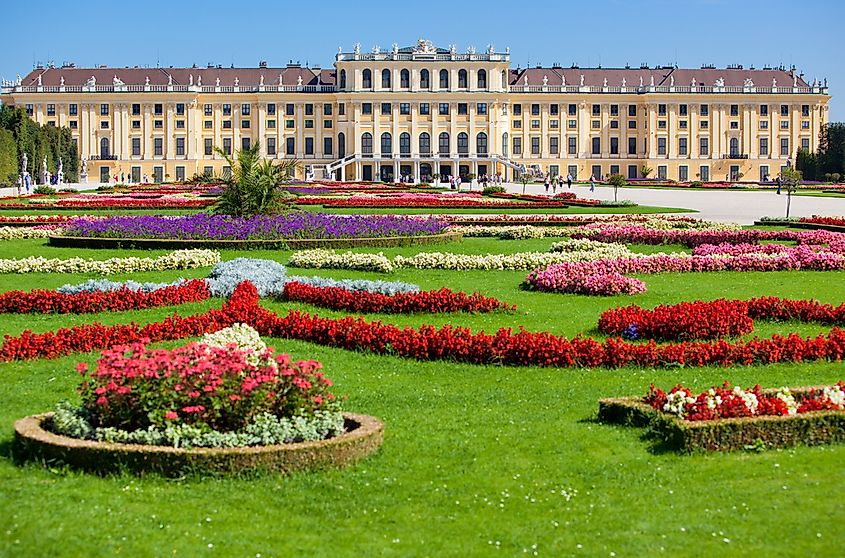
Austria shares its borders with Germany, the Czech Republic, Slovakia, Hungary, Slovenia, Italy, Switzerland, and Liechtenstein. The name "Austria" is derived from a latinization of the country's Old High German name, "Ostarrîchi" which can be translated to "eastern realm." The Latin word "auster" means south and this has caused confusion in the past. Austria is home to the world's oldest zoo, Tiergarten Schönbrunn, founded in 1752.
Bahamas
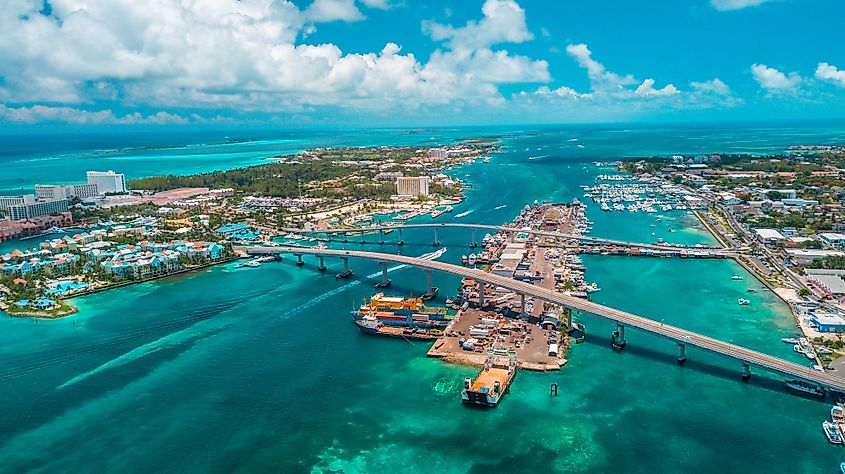
The Bahamas is an archipelago located in the Atlantic Ocean, northeast of Cuba and southeast of Florida. The name "Bahamas" comes from the Spanish "baja mar," meaning "shallow sea," reflecting its clear and shallow waters. It was named by Spanish explorers in the 16th century. The Bahamas is known for having the third-largest barrier reef in the world, called the Andros Barrier Reef.
Bahrain

Bahrain is an island country in the Persian Gulf that sits between Qatar and the northeastern coast of Saudi Arabia. The name "Bahrain" comes from the Arabic term "al-Bahrayn," meaning "the two seas," which refers to the presence of freshwater springs within the salty seas surrounding the islands. Bahrain is known for its ancient Dilmun civilization, which dates back over 4,000 years and is considered one of the earliest centers of trade.
Belarus
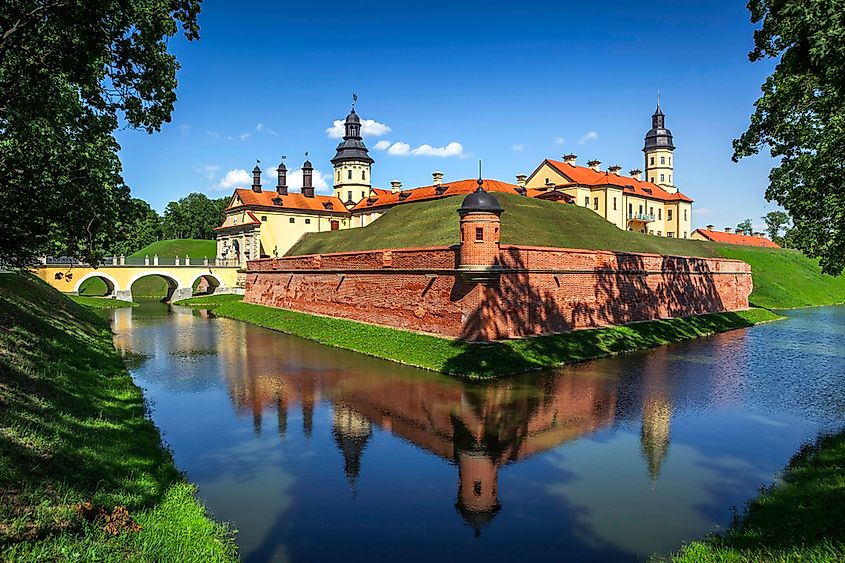
Belarus is bordered by Russia, Ukraine, Poland, Lithuania, and Latvia in Eastern Europe. The name "Belarus" means "White Rus" and is associated with the region's historical ties to the Rus' people, with "white" possibly symbolizing purity or independence. The name is thought to have originated in the medieval period. Belarus is home to the Belovezhskaya Pushcha, a vast remnant of the ancient forest that once spanned a significant portion of Europe.
Belgium
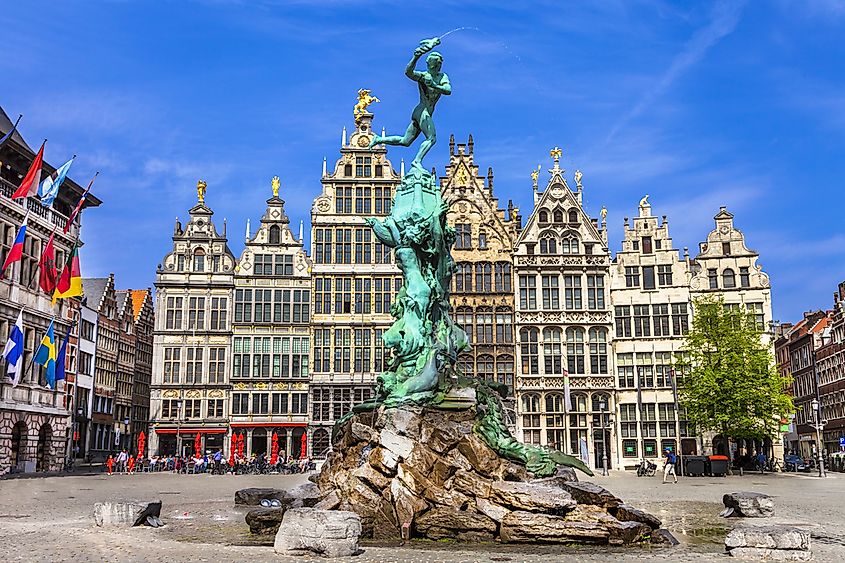
The Kingdom of Belgium is located in Western Europe and is bordered by Germany, Netherlands, France, and Luxembourg. The country derived its name from an ancient Roman Province known as Gallia Belgica. The province was located in the north of Gaul and was inhabited by the Belgae, a mix of Germanic and Celtic people. Coincidentally, Brussels, Belgium’s capital, is also a seven-letter word.
Bolivia
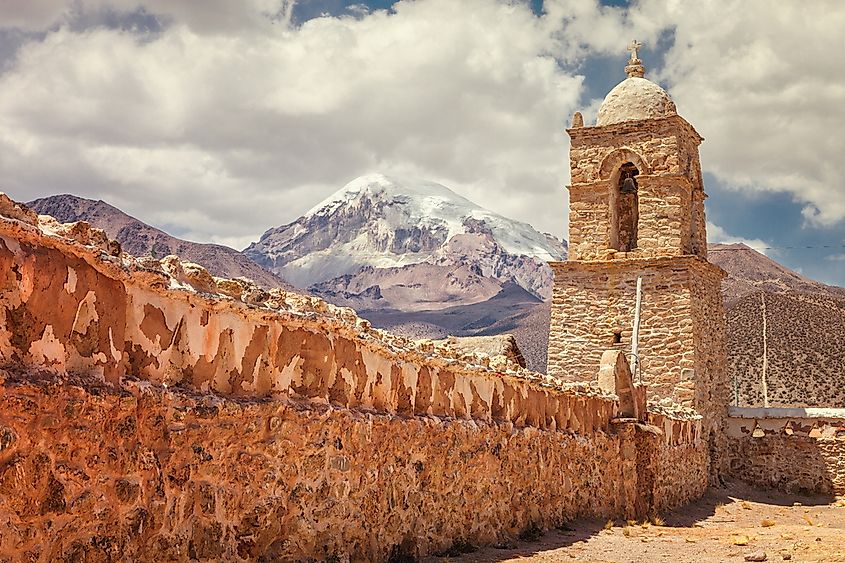
Bolivia is a landlocked country in South America, bordered by Brazil, Paraguay, Argentina, Chile, and Peru. The country is named after Simón Bolívar, a military leader who played a key role in Latin America's successful struggle for independence from the Spanish Empire. The name was adopted in 1825 after its independence. Bolivia is known for the Salar de Uyuni, the world's largest salt flat, which spans over 10,000 square kilometers.
Burundi
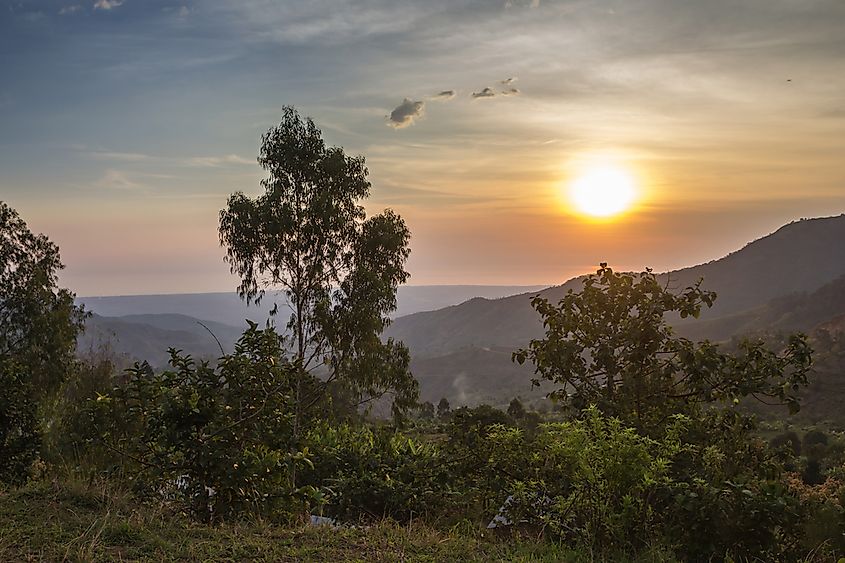
Burundi is also a landlocked country in East Africa, bordered by Rwanda, Tanzania, and the Democratic Republic of the Congo. The name "Burundi" is believed to have derived from the local Rundi language, meaning "Another one." The name reflects the country's ethnic and linguistic identity. Burundi is home to a major Source of the Nile, considered one of the most remote sources of the world's longest river.
Comoros
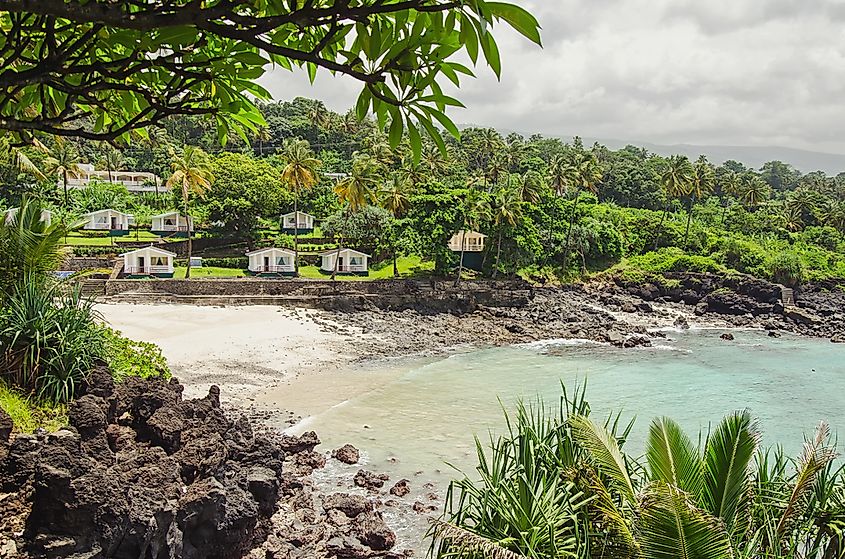
Comoros is an island country in the Indian Ocean, located between Madagascar and Mozambique. The name "Comoros" comes from the Arabic "Juzur al-Qamar," meaning "Islands of the Moon." The Arabic name was given by early traders and seafarers. Comoros is known for being one of the world's top producers of ylang-ylang, an essential oil used in the perfume industry.
Croatia
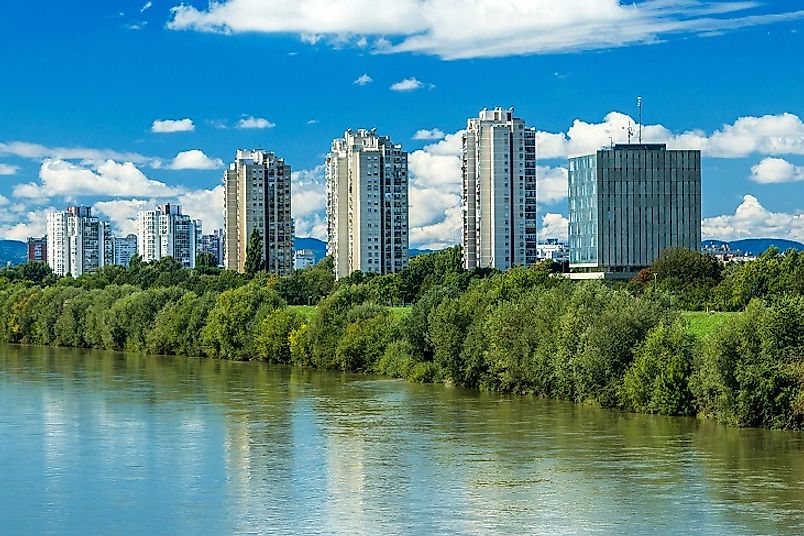
Croatia is situated in Southeast Europe, sharing borders with Slovenia, Hungary, Serbia, Bosnia and Herzegovina, and Montenegro, with a coastline along the Adriatic Sea. The name "Croatia" is derived from "Hrvat," an ancient Slavic tribe that settled in the region. The name has been used since the Middle Ages to refer to the Croatian state and people. Croatia is famous for its Plitvice Lakes National Park, a UNESCO World Heritage site known for its cascading lakes and waterfalls.
Denmark
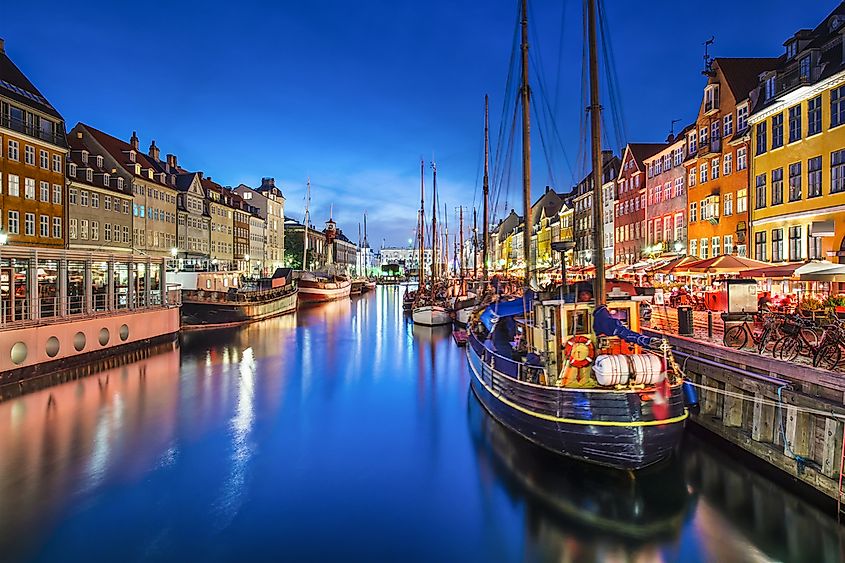
Denmark is part of the Nordic region, surrounded by the North Sea and the Baltic Sea, with land borders connecting it to Germany. The name "Denmark" has its origins in Old Norse, with "Dan" possibly referring to a person or tribe and "mark" meaning forest or borderland. An alternative theory links it to "Daner," an ancient tribe mentioned by Roman historians. Interestingly, Denmark is home to the oldest monarchy in Europe, dating back over a thousand years.
Ecuador
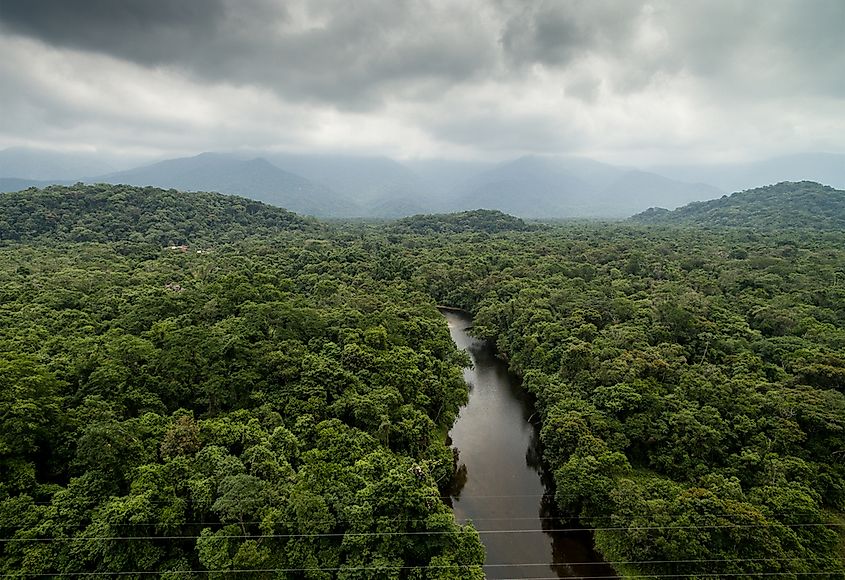
Ecuador straddles the equator on South America's west coast, bordered by Colombia, Peru, and the Pacific Ocean. The country's name directly translates to "equator" in Spanish, reflecting its geographical position. The origin of the name ties back to the colonial era when the Spanish established the Royal Audience of Quito near the equatorial line. Ecuador has a unique biodiversity, with the Galápagos Islands playing a key role in Charles Darwin's theory of evolution.
Eritrea
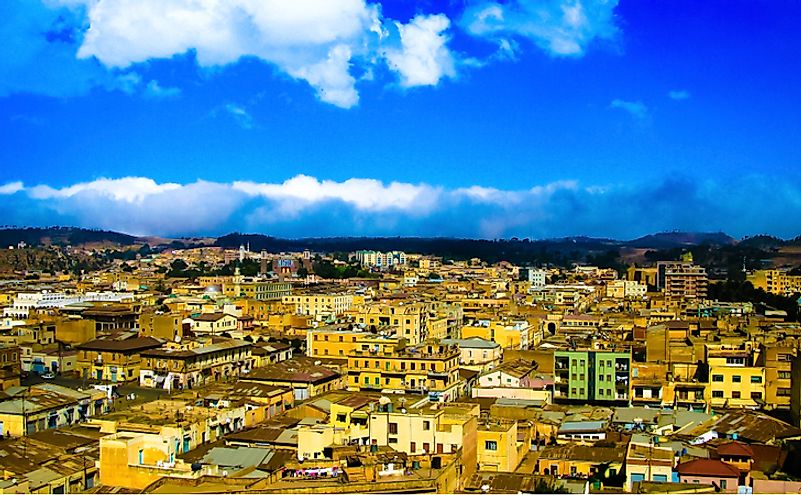
Eritrea is a country in the Horn of Africa, bordered by Sudan, Ethiopia, Djibouti, and the Red Sea. The name "Eritrea" is derived from the Greek term "Erythraeus," referring to the Red Sea, which lies to its east. The Italian colonial power officially adopted the name in the 19th century. Eritrea is home to one of Africa's oldest Christian monasteries, Debre Bizen, founded in the 14th century.
Estonia
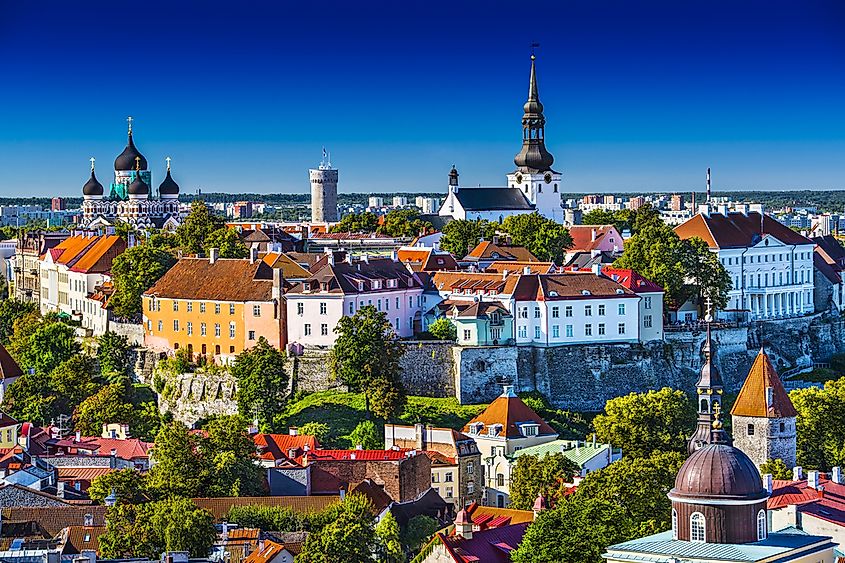
Estonia sits in Northern Europe, bordered by the Baltic Sea, the Gulf of Finland, Latvia, and Russia. The name "Estonia" likely comes from the Aesti people mentioned by the Roman historian Tacitus in the first century AD. Other historians suggest that the name has roots in the Proto-Baltic language, referring to the eastern regions. Estonia is one of the world's most digitally advanced countries, having implemented online voting and other e-government initiatives.
Finland
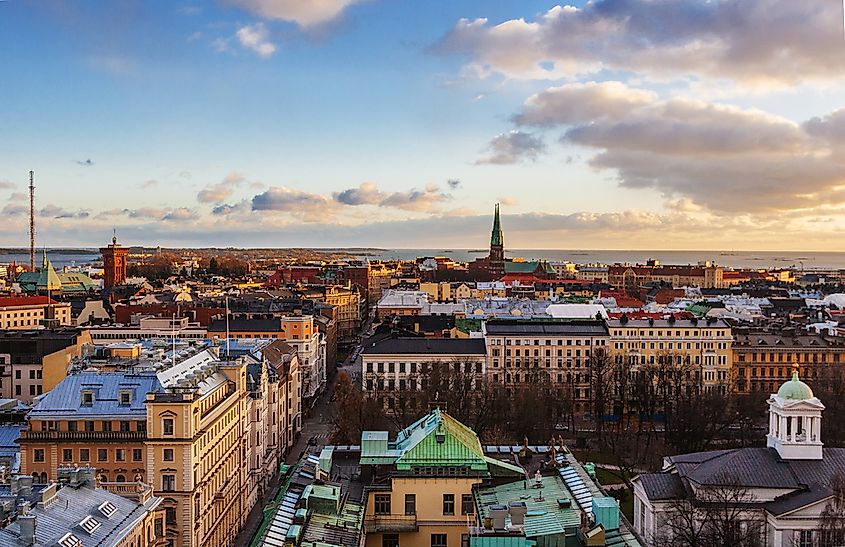
Finland is a Northern European country bordered by Sweden, Norway, Russia, and the Gulf of Finland. The name "Finland" comes from the Old Norse word "Finna," which referred to the Scandinavian people who inhabited the region. The Finnish name "Suomi" has unknown origins but may relate to the land's ancient swamp geography. A wetland background makes sense, because Finland is home to over 188,000 lakes which is why it has been called "The Land of a Thousand Lakes."
Georgia
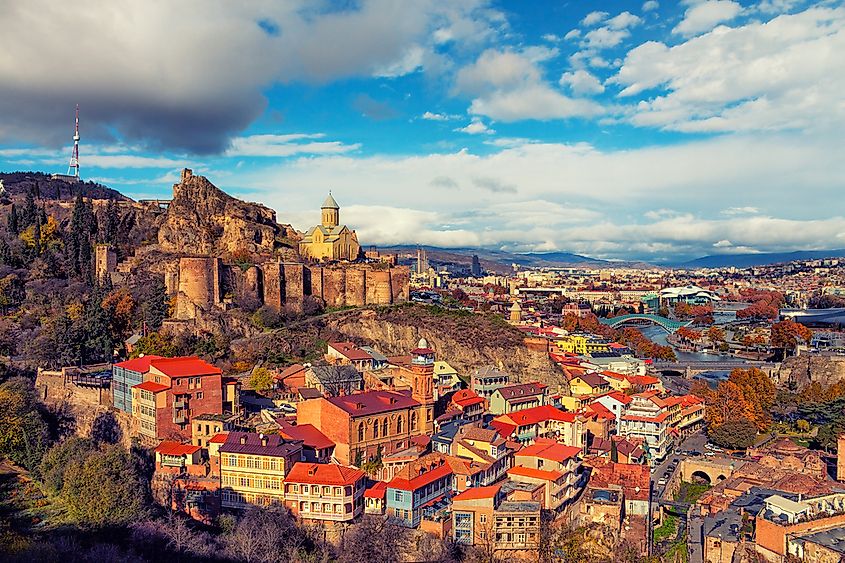
Georgia is a transcontinental country found between Eastern Europe and Western Asia, bordered by Russia, Azerbaijan, Armenia, Turkey, and the Black Sea. The name "Georgia" is believed to have originated from the Persian word "Gurgan," meaning "land of the wolves," or from the patron saint, St. George. The Georgian name "Sakartvelo" refers to the central region of Kartli. Georgia is famous for being one of the oldest wine-producing regions in the world, with a history of viticulture dating back over 8,000 years.
Germany

Germany lies in Central Europe, sharing its borders with nine countries: Denmark, Poland, the Czech Republic, Austria, Switzerland, France, Luxembourg, Belgium, and the Netherlands. The name "Germany" comes from the Latin "Germania," used by the Romans to describe the tribes in the region. However, Germans call their country "Deutschland," which means "the land of the people." An interesting fact about Germany is that it is the birthplace of the creator of the Western printing press, Johannes Gutenberg, inventing it in the 15th century.
Grenada
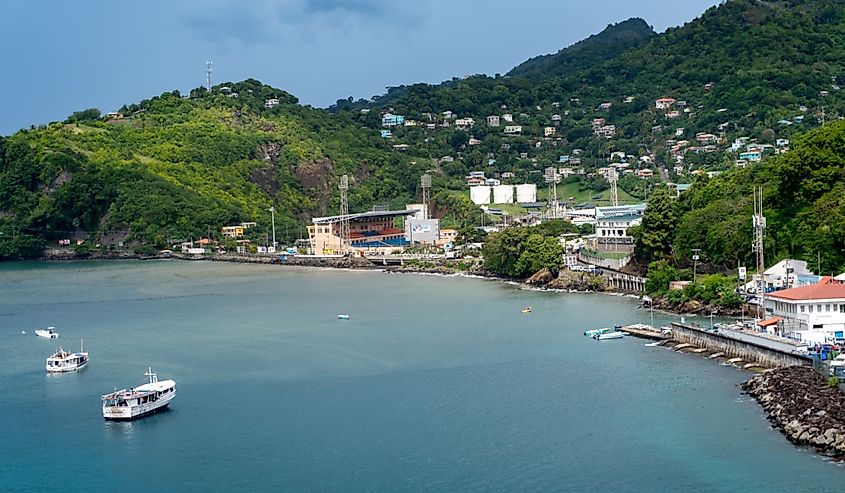
Grenada is an island country in the Caribbean Sea, located northwest of Trinidad and Tobago. The name "Grenada" was given by Spanish sailors and is thought to be derived from the Spanish city of Granada. The island was originally called "Camerhogne" by its indigenous Carib inhabitants. Grenada is known as the "Island of Spice" due to its significant production of nutmeg and mace, making it one of the largest exporters in the world.
Hungary
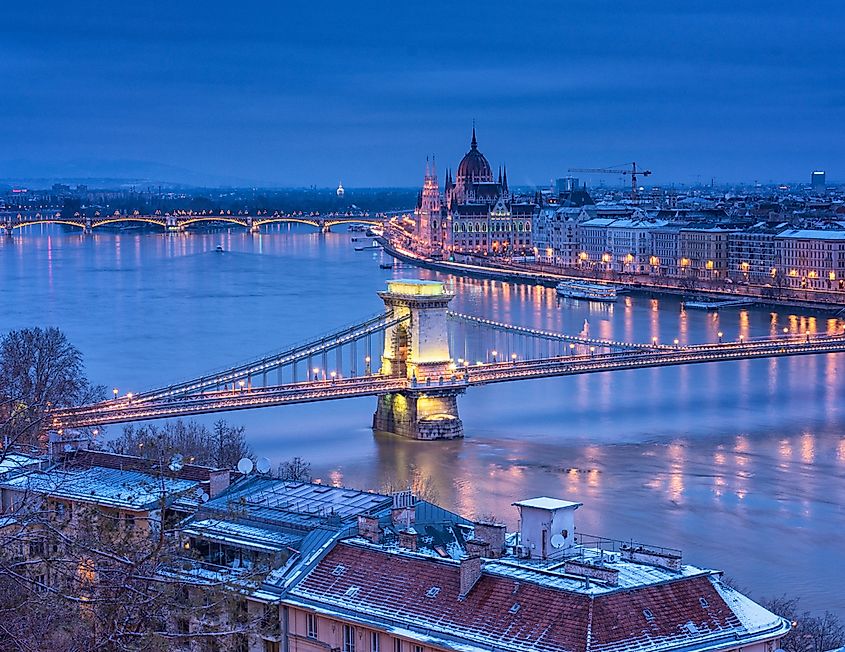
Hungary is situated in Central Europe, bordered by Slovakia, Serbia, Romania, Ukraine, Croatia, Slovenia, and Austria. The name "Hungary" comes from the medieval Latin "Hungaria," derived from the name of the early Magyar tribes known as "Onogur." The Hungarian name "Magyarország" refers to the Magyar people. Hungary is home to one of the largest thermal lake systems in the world, Lake Hévíz, known for its healing properties.
Iceland
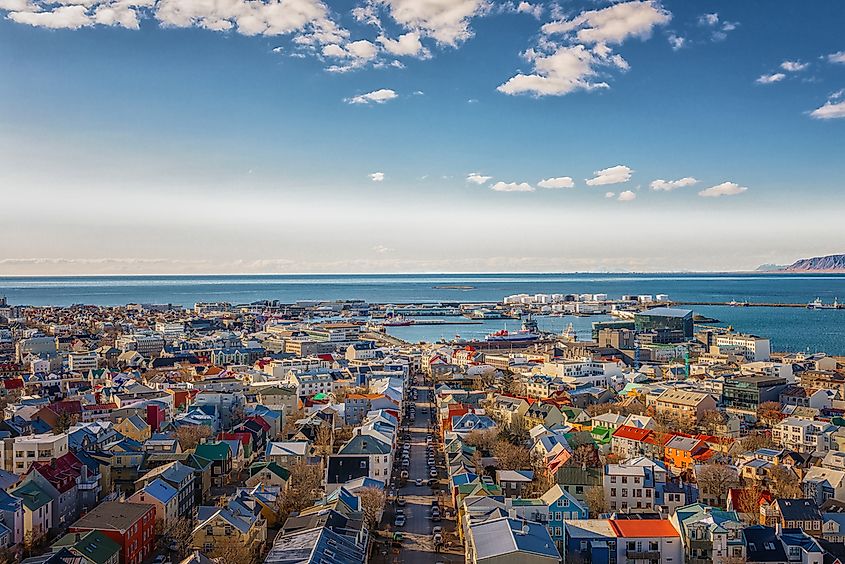
Iceland is an island country in the North Atlantic Ocean, situated between Greenland and Europe. The name "Iceland" comes from the Norse word "Ísland," given by Norse settlers in the 9th century due to the island's icy landscape. The name reflects the country's stark and contrasting environment. Iceland is known for its abundance of volcanoes, with over 30 active volcanic systems and frequent eruptions.
Ireland
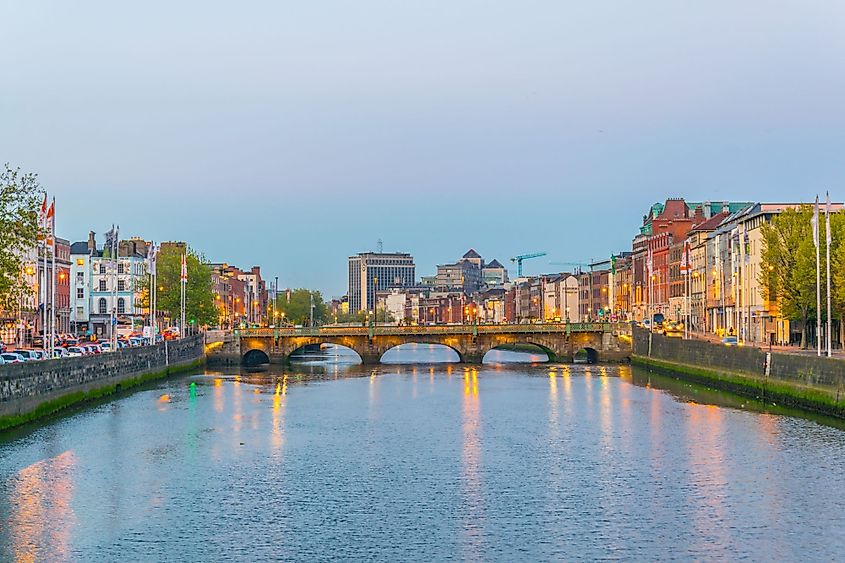
Ireland is in the North Atlantic, and it is divided from Great Britain by the Irish Sea. The name "Ireland" comes from the Old Irish "Ériu," a goddess in Irish mythology, combined with "land." The Irish name "Éire" also derives from this mythological figure. Ireland is famous for the Cliffs of Moher, towering sea cliffs that rise over 700 feet above the Atlantic Ocean.
Jamaica
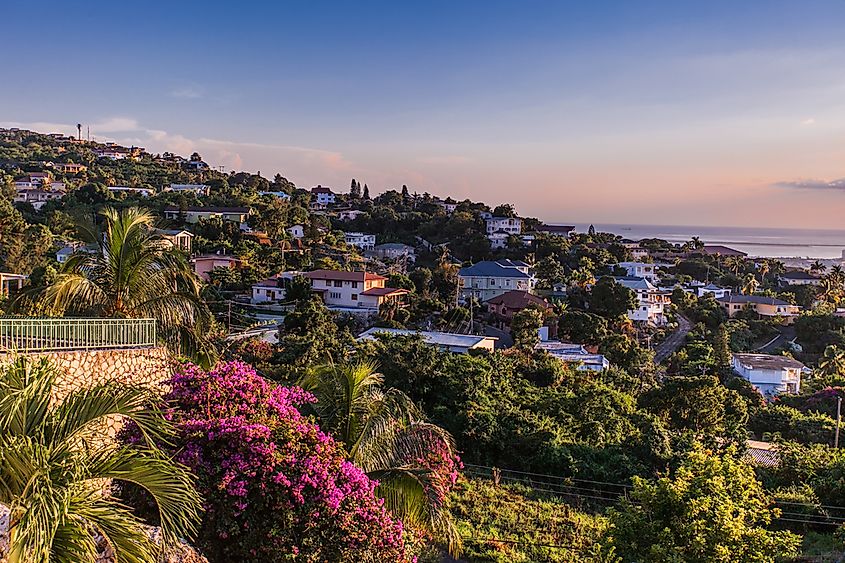
Jamaica is an island country located in the Caribbean Sea. The island country was initially inhabited by the Taino and Arawaks before coming under Spanish rule. The Taino people called the island “Xaymaca” which is an Arawakan word for “Land of Wood and Water.” Jamaicans often refer to their country as “Rock.”
Lebanon

Officially known as the Lebanese Republic, Lebanon derives its name from Mount Lebanon. The mountain derived its name from a Phoenician root “ibn” which means “white” as a result of the white snow-capped peak. The name Lebanon as an administrative unit was introduced during the Ottoman reforms of 1861.
Lesotho
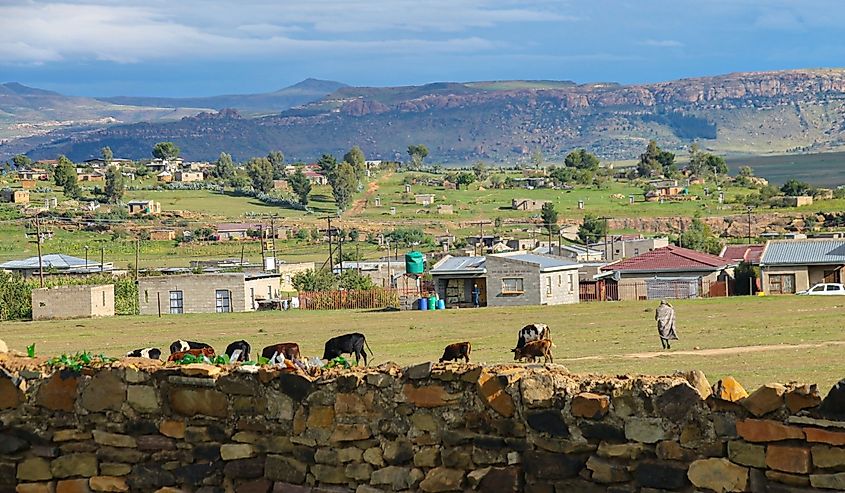
Lesotho is entirely surrounded by South Africa, and this makes it a landlocked country. The name "Lesotho" means "the land of the people who speak Sesotho," reflecting its linguistic heritage. The name was adopted in 1966 when the country gained independence. Lesotho is unique for its high altitude, with the lowest point in the country being higher than any other country's lowest point in the world.
Liberia
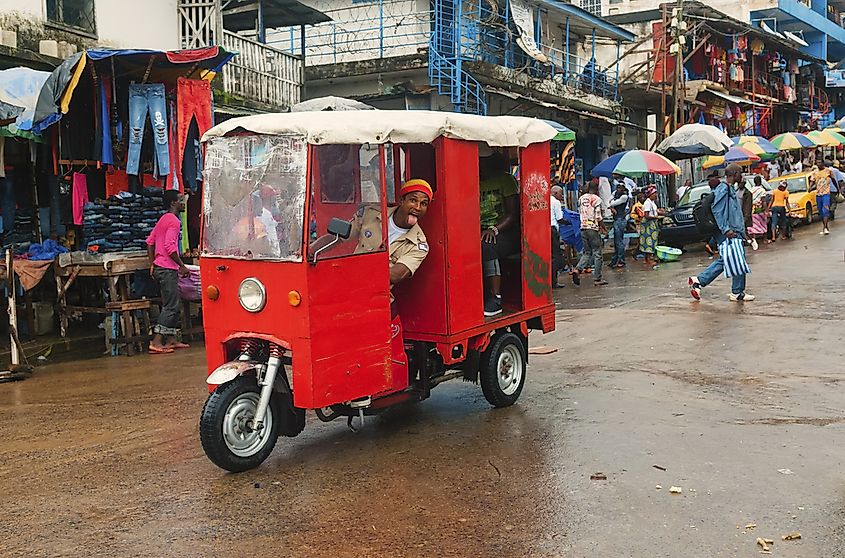
Liberia is bordered by Sierra Leone, Guinea, Côte d'Ivoire, and the Atlantic Ocean on the west coast of Africa. The name "Liberia" comes from the Latin "liber," meaning "free," reflecting its founding by freed American slaves in the 19th century. The country's capital, Monrovia, is named after U.S. President James Monroe. Liberia is Africa's oldest republic, having declared independence in 1847.
Moldova
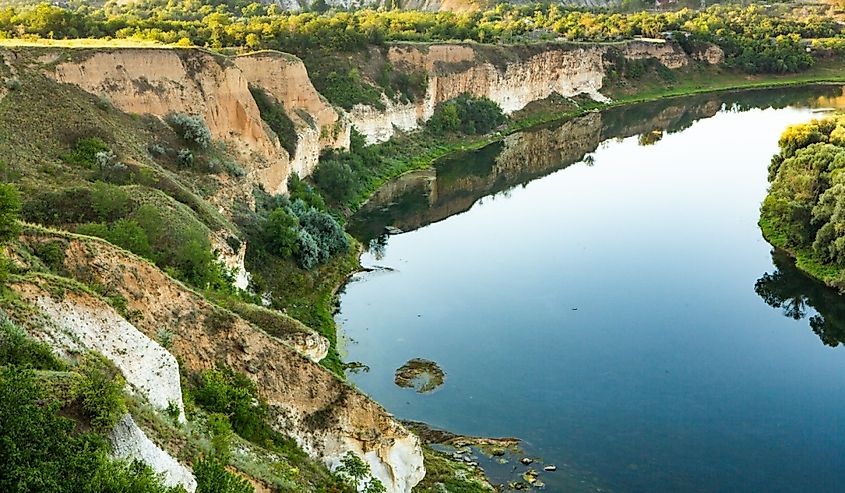
Moldova is in Eastern Europe, bordered by Ukraine and Romania, and because it does not have access to any sea it is completely landlocked. The name "Moldova" is believed to have originated from the Moldova River, with its name deriving from a Slavic word for trees like spruce or fir. Moldova is known for its extensive network of underground wine cellars, with the Mileștii Mici winery holding the record for the largest wine collection in the world as of 2002.
Morocco
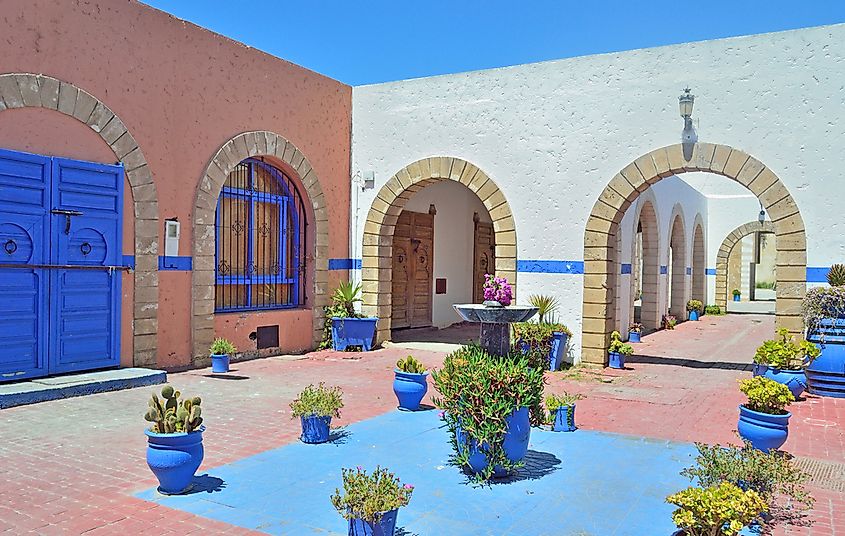
Morocco shares borders with Algeria to the east and southeast and Western Sahara to the south, with coastlines along both the Mediterranean Sea and the Atlantic Ocean. The name "Morocco" originates from "Marrakesh," a city that served as a capital during the medieval period; the name Marrakesh is derived from the Berber words amur n Yakus, meaning "Land of God." In Arabic, the country is called "Al-Maghreb," meaning "The West," as it is situated in the westernmost part of the Arab world. Morocco is home to the world's oldest university, the University of al-Qarawiyyin, founded in 859 AD in the city of Fez.
Namibia
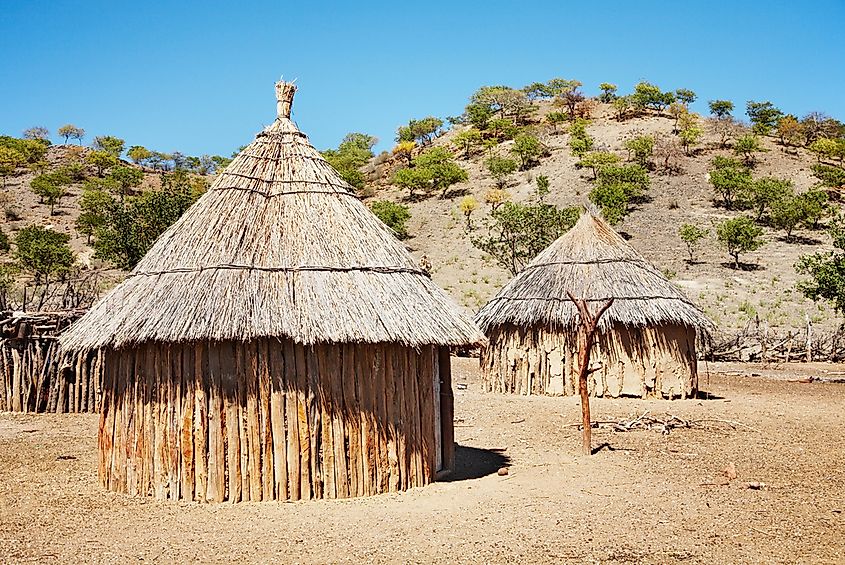
Namibia lies in southern Africa, sharing borders with Angola to the north, Botswana to the east, South Africa to the south and southeast, and Zambia to the northeast, while its western border meets the Atlantic Ocean. The name "Namibia" comes from the Namib Desert, one of the oldest deserts in the world, with "Namib" meaning "vast place" in the local Nama language. During colonial times, the region was known as "German South West Africa," later changing to "South West Africa" under South African rule before gaining independence and adopting the name Namibia in 1990. Namibia also has a very low population density, with just over 2 million people spread across its vast landscape.
Nigeria

Nigeria, the most populous country in Africa, shares its borders with Benin to the west, Niger to the north, Chad to the northeast, and Cameroon to the east, with a southern coastline on the Gulf of Guinea. The country prides itself on basing its name on the Niger River, which flows through the country; "Nigeria" was coined by British journalist Flora Shaw in the late 19th century. The name of the river itself comes from the local Tuareg word "egerew n-igerun," which means "river of rivers." Nigeria has over 250 ethnic groups, with more than 500 distinct languages spoken across the country.
Romania

Bordered by Hungary, Serbia, Ukraine, Moldova, and Bulgaria, Romania also enjoys a coastline along the Black Sea. The country's name originates from the Latin word "Romanus," meaning "citizen of Rome," reflecting its historical ties to the Roman Empire. Before being called Romania, the region was known as Dacia, a name derived from the Dacians who inhabited the area. One interesting fact about Romania is that it is home to one of the world’s largest populations of brown bears, with the Carpathian Mountains serving as their primary habitat.
Senegal
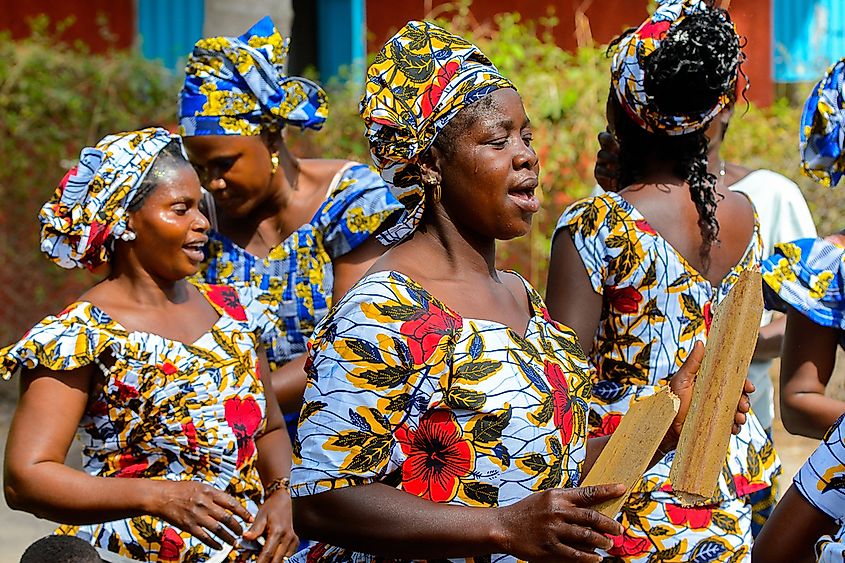
Senegal shares borders with Mauritania, Mali, Guinea, and Guinea-Bissau and is situated along the Atlantic Ocean, with The Gambia nearly splitting it in two. The name "Senegal" likely comes from the Wolof phrase "Sunuu Gaal," which means "our canoe," highlighting the importance of fishing to the local communities. In pre-colonial times, the area was known as part of the Ghana and Mali Empires. Senegal is the most western-situated country in mainland Africa, hosting the historic city of Saint-Louis, which was once the capital of French West Africa.
Somalia
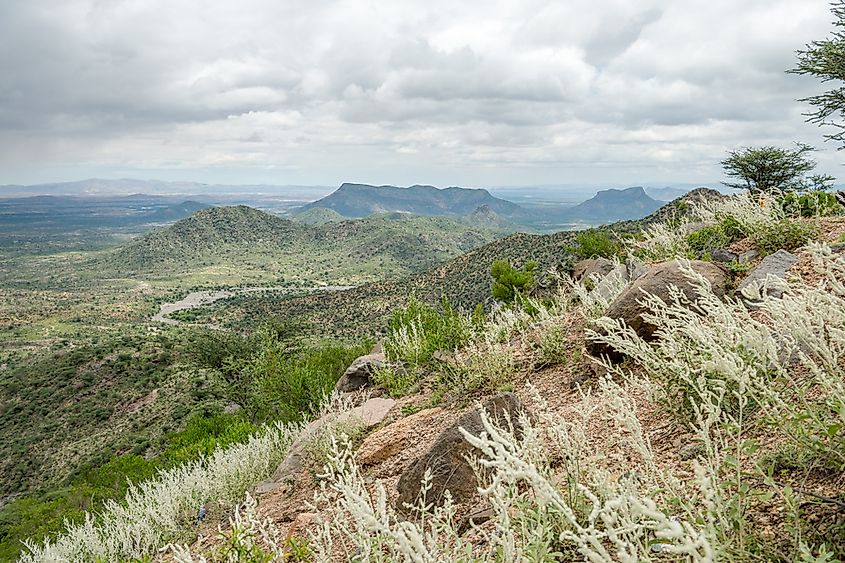
Somalia lies on the eastern edge of Africa, bordering Djibouti, Ethiopia, and Kenya, and stretches along the Indian Ocean and the Gulf of Aden. Its name likely derives from the ancient indigenous people, the Samaale, who have inhabited the region for millennia. In antiquity, Somalia was part of the Land of Punt, an ancient kingdom noted in Egyptian texts. A fascinating point about Somalia is that it has the longest coastline on the African continent, measuring over 3,000 kilometers.
Tunisia
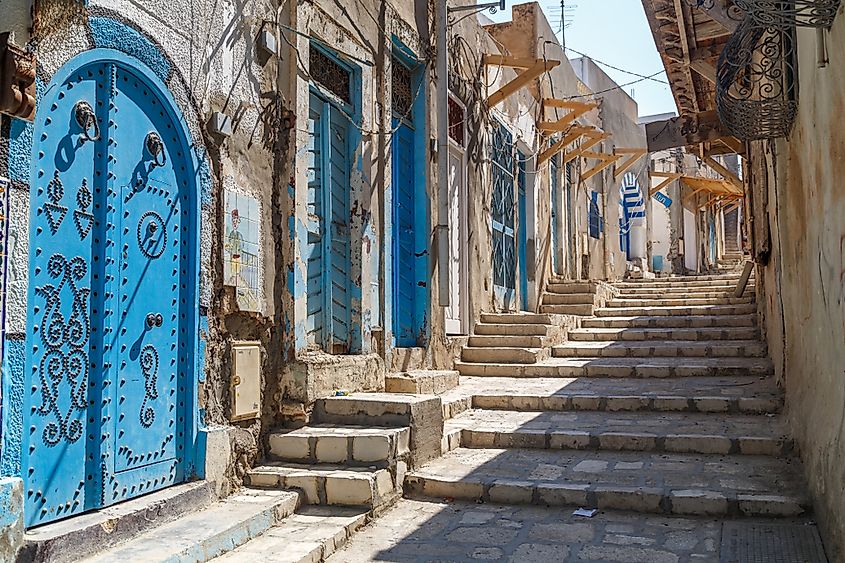
Tunisia sits at the northern tip of Africa, sharing borders with Algeria and Libya, and is bordered by the Mediterranean Sea to the north and east. The name "Tunisia" comes from its capital city, Tunis, which is believed to originate from the Berber root "tns," meaning "to encamp." Historically, the region was known as Carthage, a powerful city-state that was a major rival of Rome in antiquity. Tunisia is home to one of the world's oldest mosques, the Great Mosque of Kairouan, founded in the 7th century.
Ukraine
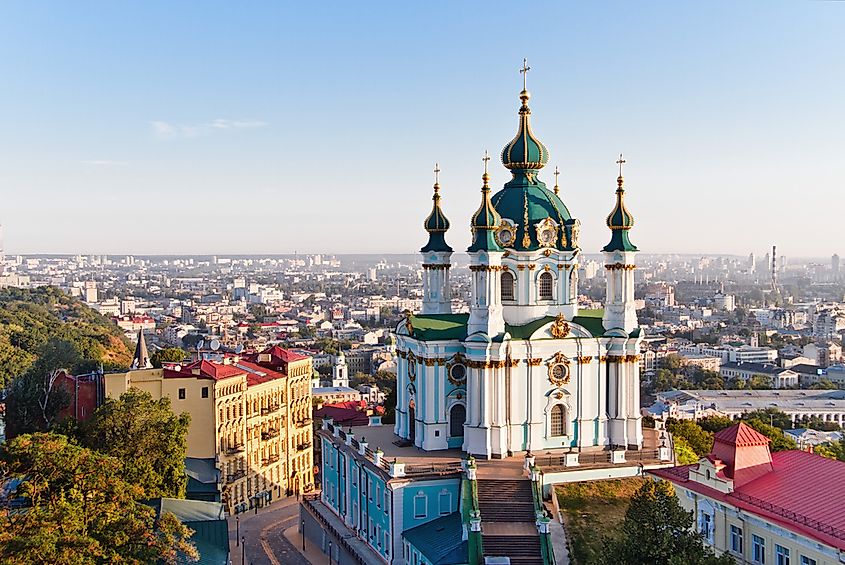
Ukraine is surrounded by Belarus, Poland, Slovakia, Hungary, Romania, Moldova, and Russia, with its southern border along the Black Sea and the Sea of Azov. The country's name is derived from the Slavic word "ukraina," meaning "borderland," reflecting its historical position at the edges of various empires. Before becoming known as Ukraine, the region was called Kyivan Rus', which was a powerful medieval state. In recent history, something novel about Ukraine is that it is home to the largest plane in the world, the Antonov An-225 Mriya, which was designed to transport the Soviet space shuttle.
Uruguay
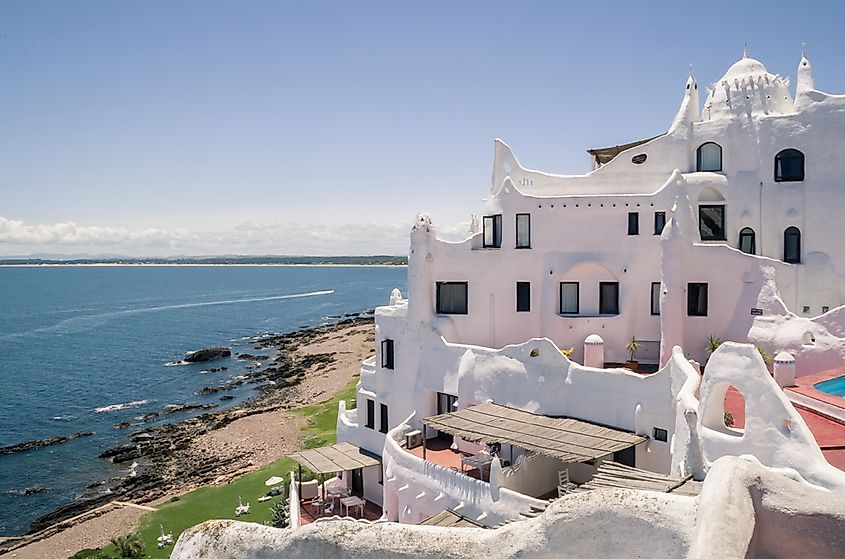
Uruguay lies between Brazil and Argentina in South America, with its southeastern coastline along the Atlantic Ocean. The name "Uruguay" comes from the Guarani language, meaning "river of painted birds," a reference to the Uruguay River that forms its western border. Historically, the area was known as Banda Oriental, or "Eastern Shore," during the Spanish colonial period. Uruguay was the first country in the world to legalize the sale and production of cannabis in 2013.
Vanuatu
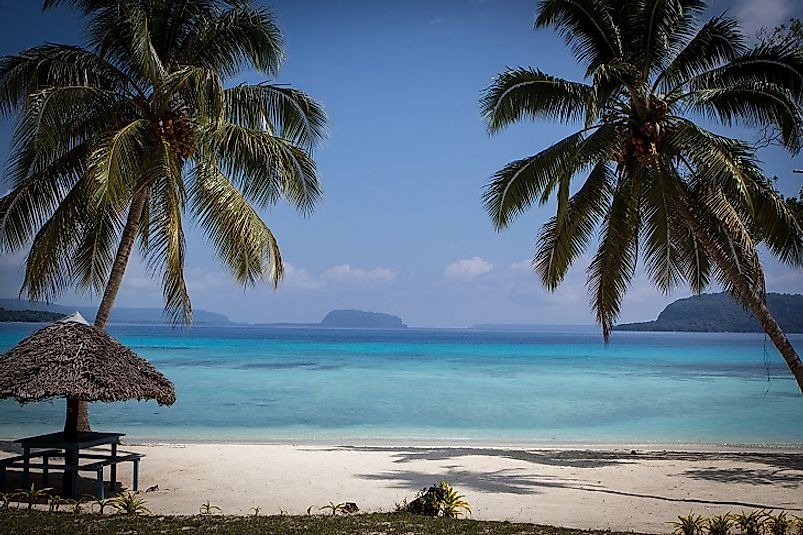
Vanuatu lies in the South Pacific Ocean, east of Australia and west of Fiji, consisting of approximately 83 islands. The name "Vanuatu" originates from the word "Vanua," meaning "land" or "home," and "tu," which means "stand" in several Austronesian languages. Before independence, the islands were known as the New Hebrides, a name Captain James Cook gave in the 18th century. Vanuatu is home to the world's only underwater post office, located off the coast of Hideaway Island, which allows visitors to send waterproof postcards from beneath the waves.
Vietnam

Vietnam shares its borders with China to the north, Laos to the northwest, and Cambodia to the southwest, with a long coastline along the South China Sea. The name "Vietnam" combines "Viet," referring to an ethnic group that inhabited the region, and "Nam," meaning "south," signifying the southern expansion of the Viet people. The name was officially adopted in 1804 by Emperor Gia Long to emphasize Vietnamese identity and unity. Vietnam is one of the world's largest cashew nuts and black pepper exporters, contributing significantly to the global supply.
All 40 Countries Spelled With 7 Letters
| Country | Population | Land Area km2 |
|---|---|---|
| Albania | 2,715,000 | 28,748 |
| Algeria | 46,839,000 | 2,381,740 |
| Andorra | 86,600 | 468 |
| Armenia | 3,009,000 | 29,743 |
| Austria | 9,295,000 | 83,871 |
| Bahamas | 409,000 | 13,880 |
| Bahrain | 1,603,000 | 760 |
| Belarus | 9,119,000 | 207,600 |
| Belgium | 11,870,000 | 30,528 |
| Bolivia | 12,341,000 | 1,098,581 |
| Burundi | 13,439,000 | 27,830 |
| Comoros | 860,600 | 2,235 |
| Croatia | 3,696,000 | 56,594 |
| Denmark | 5,989,000 | 43,094 |
| Ecuador | 17,340,000 | 283,561 |
| Eritrea | 6,344,000 | 117,600 |
| Estonia | 1,418,000 | 45,228 |
| Finland | 5,625,000 | 338,145 |
| Georgia | 3,809,000 | 69,700 |
| Germany | 86,303,000 | 357,022 |
| Grenada | 116,400 | 344 |
| Hungary | 9,574,000 | 93,028 |
| Iceland | 403,000 | 103,000 |
| Ireland | 5,304,000 | 70,273 |
| Jamaica | 2,753,000 | 10,991 |
| Lebanon | 7,447,000 | 10,400 |
| Lesotho | 2,120,000 | 30,355 |
| Liberia | 5,498,000 | 111,369 |
| Moldova | 2,487,000 | 33,851 |
| Morocco | 36,769,000 | 716,550 |
| Namibia | 2,688,000 | 824,292 |
| Nigeria | 228,181,000 | 923,768 |
| Romania | 18,673,000 | 238,391 |
| Senegal | 18,504,000 | 196,722 |
| Somalia | 20,300,000 | 637,657 |
| Tunisia | 11,965,000 | 163,610 |
| Ukraine | 42,787,000 | 603,550 |
| Uruguay | 3,459,000 | 176,215 |
| Vanuatu | 332,600 | 12,189 |
| Vietnam | 101,403,000 | 331,210 |




